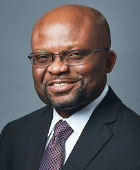As Another Election Looms, the Goldwater Rule Remains Relevant as Ever
The 2016 U.S. presidential election unleashed strongly felt sentiments in a way that was similar to the response to the 1964 election between then-President Lyndon Johnson and Arizona Sen. Barry Goldwater. Preceding that election, 1,189 psychiatrists responded to a survey published in FACT magazine (now defunct) saying that Sen. Goldwater was psychologically unfit to be president. Without having examined the senator, some of these psychiatrists also gave a narrative explanation justifying their opinion. This incident is what prompted the APA Ethics Committee to promulgate Annotation 7.3 of the “Principles of Medical Ethics With Annotations Especially Applicable to Psychiatry,” also known as the Goldwater Rule, in 1973. This rule prohibits APA members from offering a professional opinion on the mental health of individuals in the public light unless they have conducted a psychiatric examination and obtained authorization to disclose the information.
In the lead-up to the 2016 election, the cautionary injunction embedded in the Goldwater Rule was not only discarded by some psychiatrists, but also vigorously and persistently attacked. Some psychiatrists, who received prominent attention in the media, asserted that ethics rules are not rules per se as they are not absolute and criticized APA because the rule curtails freedom of speech and scholarship (as in the case of scholarly psychobiography, political psychology, and psychohistory). They argued that the rule impairs a critical national security function by interfering with a psychiatrist’s duty to warn the public about a dangerous politician running for president. Additionally, they argued that only APA has such a stifling injunction against free speech. In their expressed opinion, a psychiatrist describing public individuals in psychological terms is appropriate if a diagnosis is not presented.
As promulgated in 1973, the Goldwater Rule makes no mention of diagnosis, but rather urges psychiatrists to desist from publicly offering a “professional opinion” regarding an individual they have not examined and for which they have not been granted proper authorization. What constituted a professional opinion came into such heated debate that the APA Ethics Committee provided more detail in 2017 (see Ethics Opinion Q.3 in “Opinions of the Ethics Committee on the Principles of Medical Ethics”).
As the arguments persisted, the AMA, in 2017, addressed the acceptable ethical conduct of physicians providing medical information in the media (see AMA Code of Medical Ethics, Opinion 8.12). Notably, the AMA enjoined physicians to ensure the medical information they provide is “accurate,” “commensurate with their medical expertise,” and “based on valid scientific evidence and insight gained from professional experience.” Physicians should “[c]onfine their medical advice to their area(s) of expertise and should clearly distinguish the limits of their medical knowledge where appropriate.”
The AMA opinion also enjoined physicians to refrain from making clinical diagnoses of individuals in the public eye whom they have not personally examined. In the case of individuals they have examined, a physician should not disclose identifiable information unless given specific permission by the patient to do so. Finally, physicians commenting in the media should always disclose conflicts of interest and avoid situations that may lead to potential conflicts.
The American Psychological Association also weighed in on the debate, with its president issuing a statement in support of the Goldwater Rule, noting “psychologists should not offer a diagnosis in the media of a living public figure they have never examined.”
Some psychiatrists seeking to comment on public officials they believe to be dangerous opine that they have an ethical obligation to warn the public. Unfortunately, in taking such a position they have incorrectly applied an ethical duty—one that may exist in the context of a particular psychiatrist-patient relationship—to a nonpatient with whom there is no treatment or evaluative relationship. Even if such an obligation existed, it is somewhat misguided to believe that psychiatrists’ opinions regarding a political candidate would hold much sway in the current polarized U.S. political climate.
Some have also argued that commenting about public individuals deemed “dangerous” is comparable to court testimony in which an individual being evaluated by a forensic psychiatrist has not been examined. As noted in APA’s Ethics Opinion Q.3, this comparison is grossly misleading. Forensic ethics require psychiatrists retained in authorized legal proceedings to make appropriate efforts to examine the evaluee, and psychiatrists are ethically obligated to state that their professional opinion is limited if they are unable to examine the evaluee. In the latter case, psychiatrists are still required to review all relevant documents and obtain corroborative information by interviewing relevant parties. Without these activities, the objectivity of a psychiatrist’s opinion would appropriately be called into question.
Although psychiatrists may hold contrary views regarding the Goldwater Rule, its violation has potentially serious consequences for both individuals and the profession. Public debates and assertions by psychiatrists regarding an individual’s mental health without examination and authority to disclose the information could result in a degradation of trust in psychiatrists and in the expectation on the part of the public that patient confidentiality will always be protected. Additionally, psychiatrists should always be acutely aware that their public pronouncements have the potential to strip individuals of their humanity, dignity, and respect. Such power demands the highest degree of responsibility, accountability, and restraint.
Challenges to the Goldwater Rule are likely as the U.S. enters the throes of another contentious presidential campaign. Debates about the mental health of the presumed candidates of both parties have surged in the media with some commentators calling on mental health professionals to weigh in. Without the restrictions of the Goldwater Rule, the risk of psychiatrists arguing on opposite sides is high, thereby debasing our profession. The need for holding tight to its injunctions has never been greater. ■




